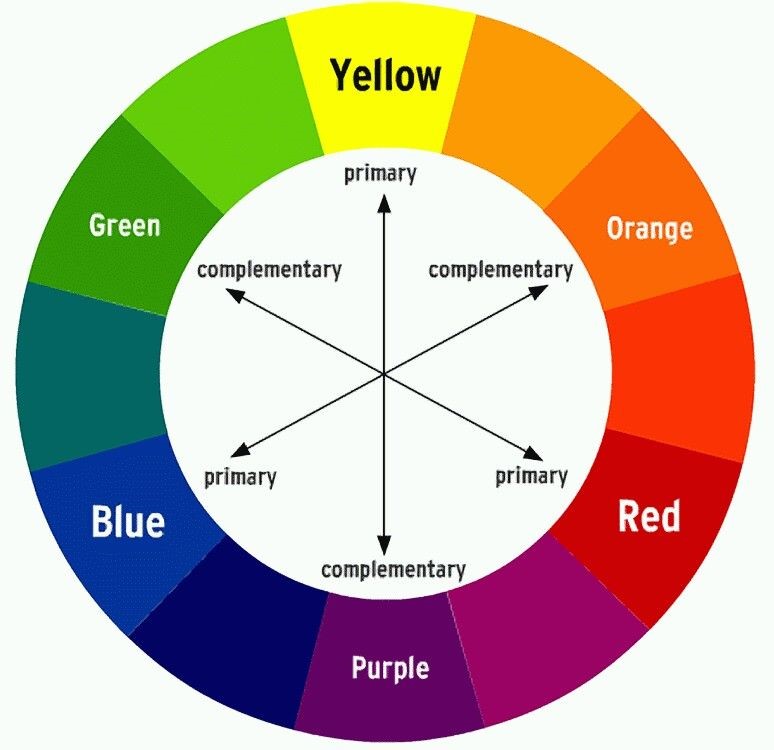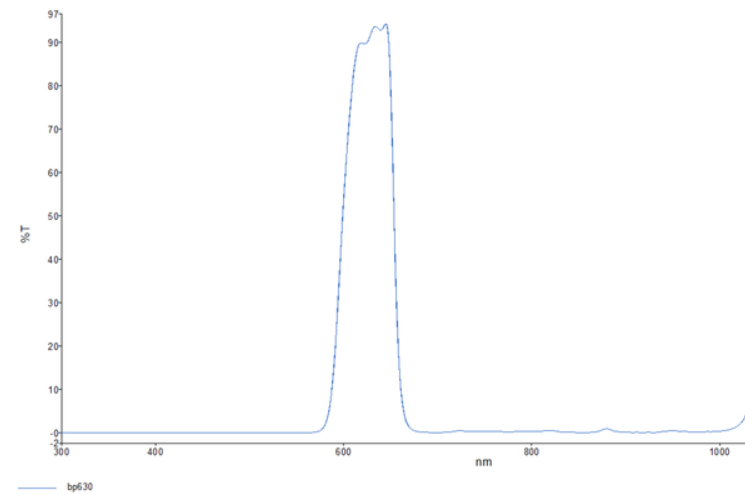The use of (color)
C-mount lens filters is to be able to create contrast between colored parts of an object with a monochrome camera to easily detect and measure the specific part of the object. Additionally (color)C-mount lens filters are used to block external-environmental lighting. Why monochrome camera and not color? Because monochrome cameras are up to 3 times more light sensitive and produce sharper images. (Color)C-mount lens filters can be applied to camera lenses without significant loss of light or image quality.
Color lens filter principle
Using a Color lens filter to add contrast works on subtraction idea. For this example we take a red bottle cap with red lens filter.
The red Lens filters does not brighten up the cap.
Instead, the complementary colors and the colors close to the complementary colors are filtered out.
As a result the red colors shades stay bright and the complementary color shades become very dark, thanks to the red Color lens filter.

The result of a Red color filter
In Fig.A below, the result of a Red color filter on a monochrome camera.
Our goal is to create enough contrast between red and blue caps, on a green background to identify reliably each cap.
With a color camera we have good contrast between the red and blue cap, and the green background. However we want to use a monochrome camera to increase the contrast, the resolution and the light sensitivity of the image.
If we only use a monochrome camera, there is a minimal contrast between the caps and the background.
We can achieve our goal of creating contrast by adding a red color filter to the C-mount lens.
Fig A.

How to read the Lens filters transmission graph?
Each lens filter has a transmission graph.
It shows the transmission amount in percentage for each light wave length.
The example below shows the transmission graph of the red color filter. The useful range for this red color filter is 610-648nM.
The useful range is the light wave length range where the transmission is more than 80%. It means that more than 80% of the light that hits the filter will pass through and reach the image sensor.
Lens filters transmission graph can be found on each lens filter’s page, e.g. :
RED Narrow bandpass filter, 630nM Peak wavelength,

Which light filter is built into an industrial camera?
Standard, monochrome cameras have a clear glass filter. Industrial color cameras have a NIR block filter.
A clear glass filter will pass all light wave lengths. It is only used for protection of the image sensor of the industrial camera.
The NIR block filter will filter out wave length above 670nm. These are the near infrared light wave lengths(700 to 1000nm). This is very important for color cameras because the Red Green and Blue pixels of a color camera are all sensitive to NIR light. As a result there will be less contrast between the red green and blue pixels if the NIR light is not filtered out.
In summary, mono cameras are usable with NIR light and normal light.
Industrial Color cameras are usable only with visible light. An industrial Color camera can be equipped with a clear glass light filter to make it usable with NIR light. The image quality of the industrial camera will degrade.
How to mount a lens filter on C-mount industrial camera
The easiest way to mount a lens filter on C-mount industrial camera is to screw it on the lens thread of the lens. Some industrial lenses do not have a filter thread. In that case our special C-Mount filter can be used. This lens filter is mounted into the c mount of the industrial camera. It is position between the image sensor and the lens. Therefore it influences the back focal length of the industrial lens. To compensate the influence of the light filter a 1mm extension ring is put between the lens and the C-mount industrial camera.
Any questions regarding this subject?
Get in touch with us! We answer all emails within 24hrs.


